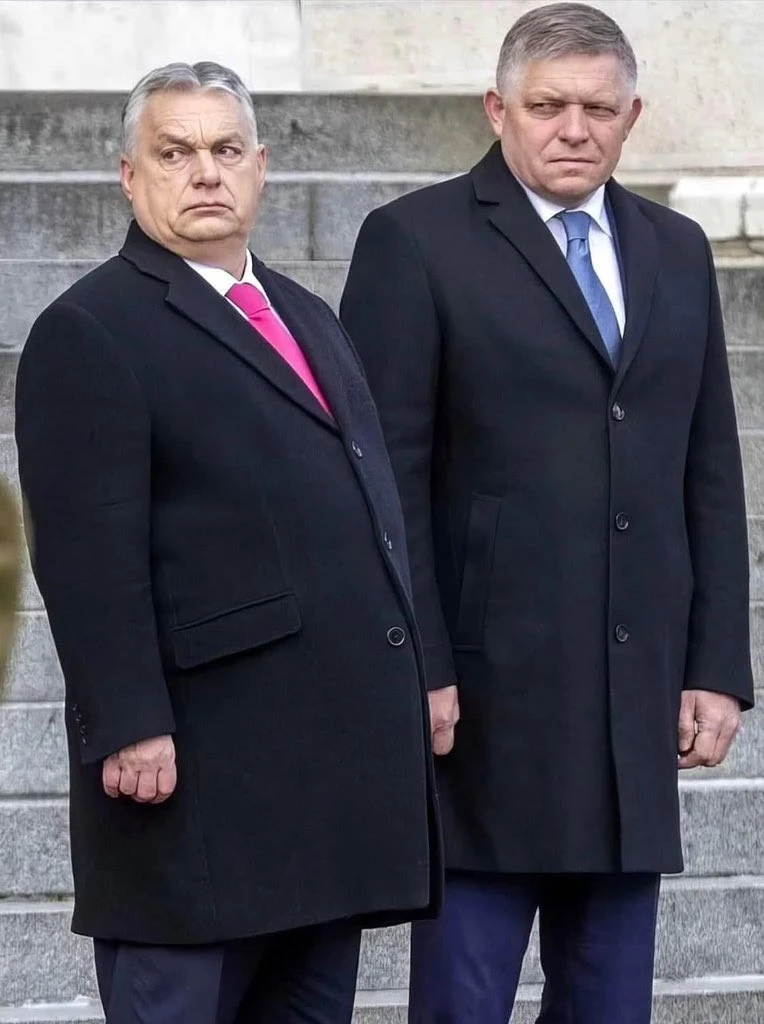
Gas needle almost broken: Russian gas supplies to Europe via Ukraine set to stop on January 1, 2025
On January 1, 2025, Russian gas supplies to Europe through Ukraine are set to stop. The formal reason for this is the expiration of the five-year transit contract signed by Kyiv and Moscow in December 2019
“We will not continue to transit Russian gas. We will not give them the opportunity to earn additional billions on our blood... Any country in the world that can get something cheap from Russia will eventually become dependent on the Russian Federation,” said Ukrainian President Volodymyr Zelenskyy.
After the full-scale invasion began, Russian gas transit through Ukraine continued. According to media reports, the Ukrainian government was informally asked by the EU not to “turn off the tap.” Europe needed time to reduce its dependence on Russian gas, which accounted for 40% of its consumption before the war. Even before February 24, 2022, in the fall of 2021, Russia took advantage of this dependence and unleashed an energy war against the EU by reducing supplies to a minimum. The goal was clear: to pressure Europe into withdrawing its support for Ukraine.
But it failed. The EU managed to replace Russian fuel with supplies from Norway, the United States, and Qatar. Germany, once the largest importer of Russian gas, decided not to buy it at all. However, some countries, like Slovakia, are not ready to “say goodbye” to Russian fuel. Their leaders have long-standing, close, and far from transparent relations with the Kremlin. Another proof of this was the unannounced visit of Slovak Prime Minister Robert Fico to Moscow and his semi-secret talks with war criminal Putin.
“Slovakia will lose about half a billion euros in transit fees, Ukraine will lose almost a billion euros, and Russia will probably lose only 2.5 billion euros. We’ve punished the Russians again, haven’t we? Who cares about Slovakia, right, Mr. Zelenskyy? But when you need something to keep you warm in winter, you scream shrilly,” says Slovak Prime Minister Robert Fico.
Fico has even threatened to cut off the supply of electricity that Ukraine needs due to massive Russian attacks on the energy system. However, Ukraine imports electricity within the framework of the single European energy market, and if the Slovak prime minister wants to break these general rules, Brussels' reaction will be very harsh.

Rather, the threats are likely a play for the Slovak electorate, as the ruling coalition in Slovakia is shaky, and early elections are a real possibility. Fico also responded to Zelenskyy, who was publicly outraged by the Slovak prime minister's visit to Moscow. According to the president, Ukraine offered Slovakia compensation for potential losses caused by the suspension of Russian gas transit, and the European Commission was ready to help find alternatives. However, Fico showed no interest.
“We are fighting for our lives, and Fico is fighting for money - and it’s hardly money for Slovakia. Shadowy agreements with Putin are either trading in state interests or working for one’s own pocket,” Zelenskyy emphasizes.
Fico has an ally in the EU, Hungarian Prime Minister Viktor Orbán. He is also demanding the continuation of transit through Ukraine, despite the fact that Hungary actually receives Russian gas via a different route - through Turkey and South Stream.
"We are now trying to do a trick... so that the gas would no longer be Russian, but would already be owned by the buyers by the time it reaches the territory of Ukraine. Thus, the gas coming to Ukraine will no longer be Russian, but Hungarian," says Hungarian Prime Minister Viktor Orbán.
There are plenty of “magicians” willing to perform “tricks” with transit. Until the last moment, the media reported that Ukraine and Russia were allegedly negotiating with Azerbaijan as a mediator. To save the transit, Russian gas would be legally registered as Azerbaijani gas. The information about these negotiations was publicly confirmed by President Ilham Aliyev.
"If the transit stops, and this will happen in December, several European Union countries will face serious difficulties with the physical availability of natural gas. We just want to support these countries and Ukraine, because if gas transit stops, Ukraine's gas distribution system will be completely paralyzed," Aliyev said.
There are probably enough supporters in Ukraine to continue the transit of Russian gas under any guise - Hungarian or Azerbaijani. After all, transit means a lot of money. For decades, not all of it has gone to the Ukrainian budget. Officially, Ukraine earned about a billion dollars a year from gas transit, but after January 1, that money will be gone. The risks of missile and drone strikes on gas transportation infrastructure are also increasing. The Ukrainian pipeline itself, which politicians have been quarreling over for decades, will be useless in its current form once transit stops. A number of compressor stations will have to be shut down.
But this is nothing compared to the losses on the Russian side. The USSR and later Yeltsin-Putin Russia spent almost 50 years trying to impose gas dependence on Europe. In 2022, they tried to take advantage of it, went all-in, and lost. Russian gas supplies have fallen significantly. "Gazprom is now declaring huge losses. Europe has changed suppliers. And it is unlikely that Fico and Orbán will be able to change this. After all, their overseas political idol, President-elect Donald Trump, directly demanded that Europe abandon Russian fuel and buy American liquefied natural gas during his first term. In exchange for security. And security is expensive these days, amid the biggest war in Europe since World War II."
- News













































